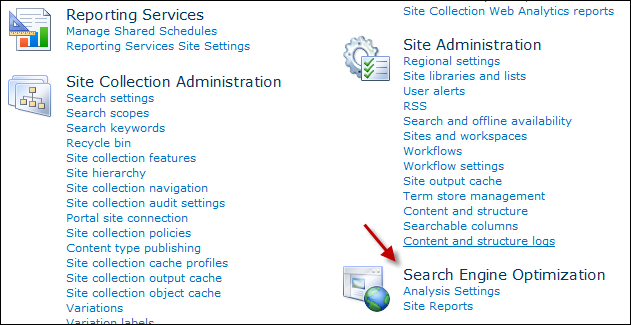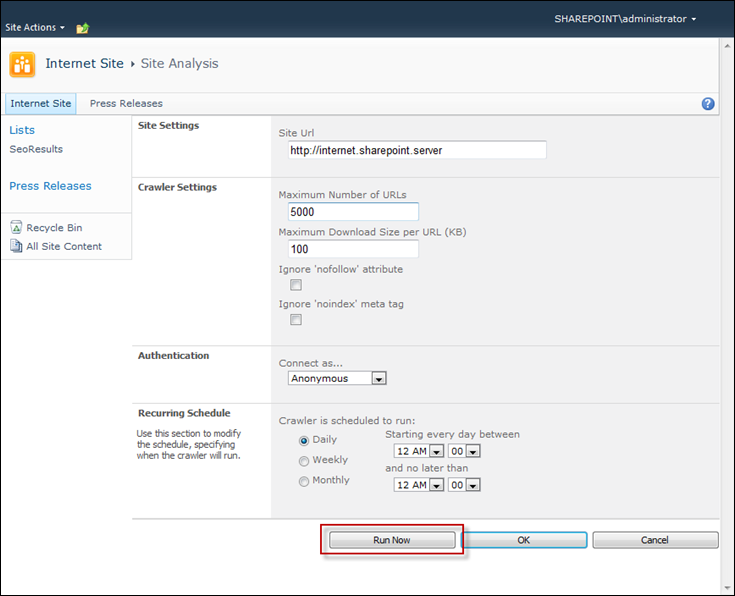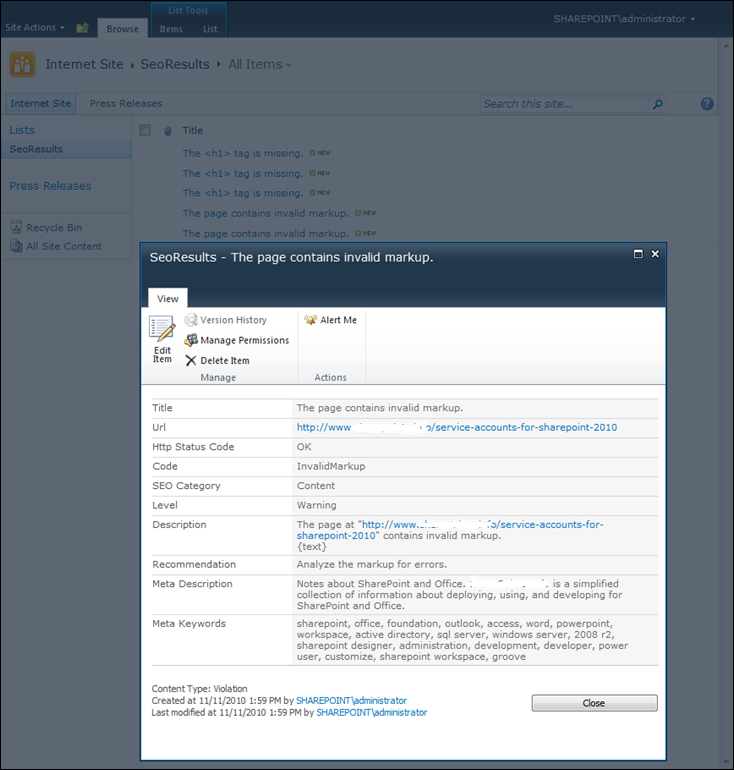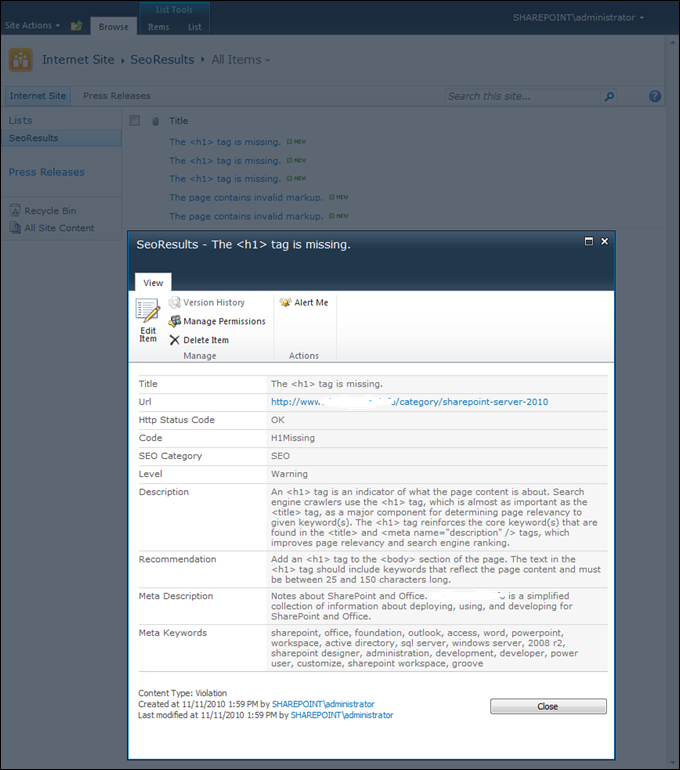SEO Toolkit for SharePoint?
Well, this post is about SEO with SharePoint. As more and more public-facing sites with SharePoint come up, the topic of SEO keeps coming back in all those conversations, be it elevator, meeting room, or a formal evaluation of platform capability.
So why a question mark?
Well, those who follow Microsoft Web Platform knows that there is already a super cool & free SEO Toolkit for IIS (& with WebMatrix) that you can use against your external, internal, or any other site outside your network/server. Yes, you can use it with SharePoint sites as well – toolkit doesn’t care. The only problem (somewhat) is that this needs to be installed and run by a geek like you and me.
Short story is, I was recently engaged in a conversation that lead to comparison of CMS platform like SharePoint, SiteCore and few others. On topic of SEO, browser integrated tooling in SiteCore took bit of numerical edge since it gives content authors the view and accessibility of SEO parameters in their content and therefore reducing the feedback loop to ensure SEO friendliness.
Here is a snapshot of what SEO Toolkit looks like in SiteCore:
In SharePoint world, SEO friendliness in sites – to large extent – sits outside the browser and beyond reach of a typical content author, on developers and designers desktops in form of IIS SEO Toolkit, IDE, WebMatrix etc. Is this a bad thing? Not completely. Content authors are not expected to create H1 in the right place on page, but yeah, it is important to reduce the feedback loop for someone responsible for generating content and is interested in all outcomes for that content – particularly for SEO. Sooner he can fix that long Title he created, missing keywords etc, better it is.
Do we need SEO tooling inside SharePoint?
With above reasoning and thought I felt there is probably a need for some SEO tooling inside SharePoint, particularly on CMS front. I said *probably*, hence I would like to hear from you – if you see value, and what would you expect in terms of features?
Warning – This post is not about sharing the tooling or source code. I just want to hear your feedback, and once my prototype is mature enough to call “alpha”, I’ll share it on MSDN or Codeplex.
Disclaimer – I am not trying to add any new crawling features with my toolkit other than what IIS SEO Toolkit already does. If that toolkit works for your users with SharePoint, you will likely not see much value with below.
SEO Toolkit for SharePoint – An experiment!
So, with this thought of SEO inside SharePoint – I did a quick search to see if anything close to MS SEO Toolkit already exists. Didn’t find anything, and then I started looking into leveraging IIS Toolkit capabilities. Soon I discovered, that the IIS SEO Toolkit is extensible – Bingo!
I quickly started a VS project to experiment SEO Tookit API inside SharePoint. Here are some screenshots of what I managed to assembled – quick and dirty!
- Site Settings page…

- Site Analysis Settings page…

- After you click ‘Run Now’, results are saved in a hidden list, SEO Results…

More violations…
With that I was able to use IIS SEO Toolkit to crawl my site and report issues. The following are some of the possibilities I have in mind:
- Crawl and report on internal as well as external sites.
- Report globally across rules, so that content and site administrators can take decisions across content in current site-collection.
- Report within context of current WCM page, so that author gets to see results right there and act on it.
- Do tabular reporting, like above, as well as visual reporting with icons, charts etc.
- Support SharePoint Server as well as Foundation 2010.
- Support add-ins type model to allow additional validators, say W3C validator.
- Use built-in alerts model to be able to notify.
Call for feedback…
As you can see, I’m in prototyping mode and wondering if this is worth its time. I’d like to hear from you, if you see value and what would be most useful for your authors on SharePoint. Some questions and pointers I can think of are:
- Implement at site-collection level, or web level. Or at farm level as well.
- Support only SP sites, and not allow external site analysis.
- Support not just analysis, but also sitemap file generation etc.
- Support for plug-ins to add additional validators.
- Support for running immediately, as well as scheduling to run crawl at a later time with/without recurrence.
- Support for farm, site, web level global reporting.
- Support for current page view, similar to SiteCore approach in first screenshot above.
What other features could be useful?
Conclusion
I have put together a bare-bone prototype to experiment on possibility of a SEO toolkit to run inside SharePoint. It would be useful to hear you feedback if this could be of use to your scenarios, when there is already a IIS SEO Toolkit which rocks!
If this takes next steps of further development, I would like to polish it a bit more before I share the tooling.
![seo-overview-tab[9] seo-overview-tab[9]](https://aspblogs.blob.core.windows.net/media/sharadkumar/Media/seo-overview-tab9_thumb_030B23F3.jpg)